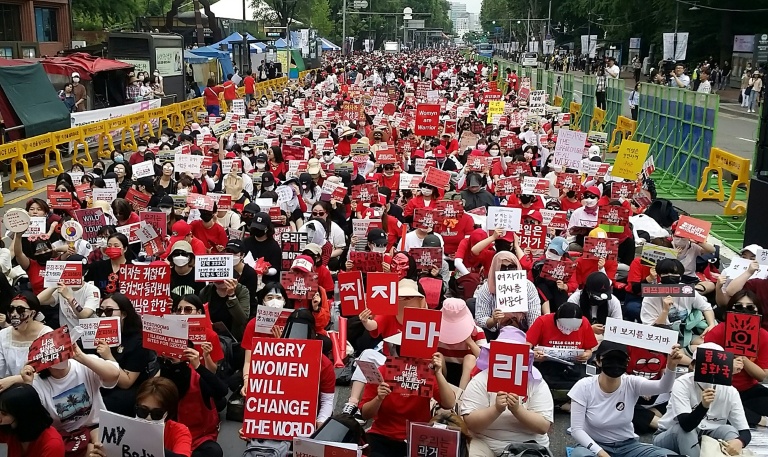World
South Korea Reverses 60-Year Conviction in Landmark Self-Defence Case

A South Korean court has overturned a conviction dating back nearly 60 years, acquitting Choi Mal-ja for her actions in a self-defence case that has gained renewed attention following the global #MeToo movement. On Wednesday, the Busan District Court ruled that Choi’s actions during an assault in 1964 were justified under current interpretations of self-defence laws.
Choi, who was just 19 years old at the time, was attacked in the southern town of Gimhae by a 21-year-old man. Court records indicate that he pinned her down and subjected her to severe sexual violence, even blocking her nose to hinder her breathing. In a desperate bid to escape, Choi bit off approximately 1.5 centimetres (0.6 inches) of his tongue. Despite her traumatic experience, the assailant received a mere six-month prison sentence, suspended for two years, for charges of trespassing and intimidation, while Choi was convicted of causing grievous bodily harm and sentenced to 10 months in prison, also suspended for two years.
The Busan District Court’s recent ruling marks a significant shift in the legal landscape regarding sexual violence in South Korea. The court stated that Choi’s actions constituted “justifiable self-defence” and were an attempt to escape an unjust infringement on her bodily integrity and sexual self-determination. This decision effectively overturns the 1965 ruling, which had previously deemed her response to be beyond “the reasonable bounds of legally permissible self-defence.”
Choi’s case gained momentum in the years following the emergence of the #MeToo movement in 2017, which sparked widespread discussions about women’s rights and sexual violence in South Korea. Her resolve to seek justice led her to file for a retrial in 2020, although her initial petitions were dismissed by lower courts. After persistent campaigning and an appeal, the country’s top court ordered a retrial in 2024.
Reflecting on her long struggle, Choi expressed her relief and hope for future generations. “For 61 years, the state made me live as a criminal,” she stated to reporters in July ahead of the retrial. “I hope future generations can live in a world free from sexual violence where they can enjoy human rights and a happy life.”
This landmark ruling represents a growing recognition of women’s rights in South Korea, a country that has seen significant activism aimed at addressing issues such as sexual violence and gender inequality. The changes reflect broader societal shifts and a commitment to confronting the historical injustices faced by women. As Choi’s case shows, the fight for justice continues to evolve, with the court’s decision serving as a beacon of hope for many.
As the discussion surrounding women’s rights develops, the implications of this ruling may resonate far beyond the courtroom, potentially influencing future legal interpretations and societal attitudes towards self-defence in cases of sexual violence.
-

 Science2 months ago
Science2 months agoToyoake City Proposes Daily Two-Hour Smartphone Use Limit
-

 Health2 months ago
Health2 months agoB.C. Review Reveals Urgent Need for Rare-Disease Drug Reforms
-

 Top Stories2 months ago
Top Stories2 months agoPedestrian Fatally Injured in Esquimalt Collision on August 14
-

 Technology2 months ago
Technology2 months agoDark Adventure Game “Bye Sweet Carole” Set for October Release
-

 World2 months ago
World2 months agoJimmy Lai’s Defense Challenges Charges Under National Security Law
-

 Technology2 months ago
Technology2 months agoKonami Revives Iconic Metal Gear Solid Delta Ahead of Release
-

 Technology2 months ago
Technology2 months agoSnapmaker U1 Color 3D Printer Redefines Speed and Sustainability
-

 Technology2 months ago
Technology2 months agoAION Folding Knife: Redefining EDC Design with Premium Materials
-

 Technology2 months ago
Technology2 months agoSolve Today’s Wordle Challenge: Hints and Answer for August 19
-

 Business2 months ago
Business2 months agoGordon Murray Automotive Unveils S1 LM and Le Mans GTR at Monterey
-

 Lifestyle2 months ago
Lifestyle2 months agoVictoria’s Pop-Up Shop Shines Light on B.C.’s Wolf Cull
-

 Technology2 months ago
Technology2 months agoApple Expands Self-Service Repair Program to Canada









